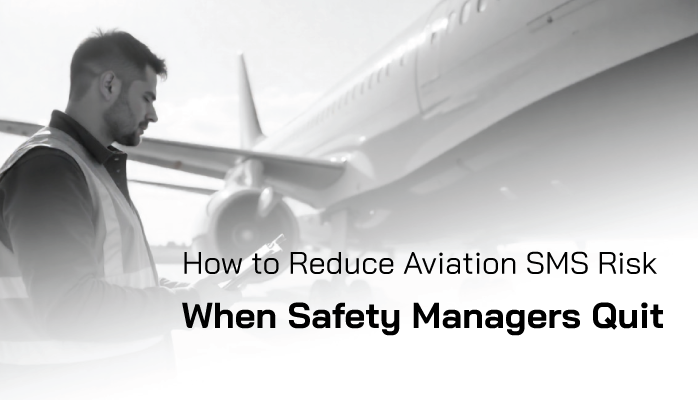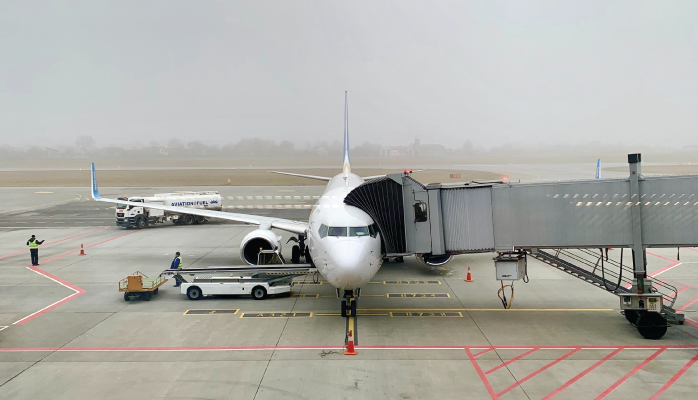Aviation Safety Managers Key SMS Personnel

Without fail, every aviation safety manager I have met has the following attributes:
- Resourceful;
- Very hard working;
- Dedicated to the company and task;
- Articulate; and
- Competitive.
This tells me that accountable executives are appointing the correct types of employees to carry out this very important task of both implementing and managing the aviation safety management system (SMS).
Related Articles on Aviation SMS Implementation
- Why Should We Implement Aviation SMS?
- How to Create Aviation SMS Implementation Plan - With Templates
- Is Your Aviation SMS Implementation a Farce? With Self Assessments
Aviation SMS implementations are not sprints, but marathons. Every successful SMS implementation I've seen relies upon two important elements:
- Top management support; and
- Motivated safety champion.
The safety champion may (or may not) be the safety manager or Director of Safety. Sometimes an SMS consultant may act as the safety champion. Regardless, without a safety champion to motivate and direct company personnel to adopt required SMS policies and procedures, the SMS will fail. Safety managers have become not only key safety personnel but have moved into the ranks of aviation service providers' key management personnel.
Safety Manager Critical to SMS Success
Most SMS implementations require three to five years to
- Plan and Develop;
- Validate elements from earlier stages; and
- Ensure continuous improvements of the SMS.
Most safety managers are impatient to quickly accomplish the task to which they have been assigned. I hate to be the bearer of bad news, but SMS implementations never cease. You will be continuously
- documenting risk management activities;
- monitoring control measures (risk controls) to ensure they are effective;
- Auditing (Internal evaluations);
- Promoting the SMS;
- Preparing reports for accountable executives to monitor SMS performance; and
- Working with accountable executives to address substandard safety performance.
OK, an SMS implementation never stops. But what happens if I cannot stand to remain with this particular company for the duration of this SMS implementation?
Knowing how to depart a company may help safety managers realistically plan their departure without leaving their employers in an awful mess. Before you leave, you may want to create a list of recurring tasks to guide the next safety manager.
Related Articles on Aviation Safety Managers
- 5 Types of Aviation Safety Managers
- Career Advice for Aspiring Aviation Safety Managers
- How to Be a Better Aviation Safety Manager
Mature SMS Implementations Never Stop Evolving

As I referred to above, mature SMS implementations take considerable time to develop. Generally, three to five years will be required if everything falls into place. The biggest SMS implementation killers are:
- Turnover of key safety personnel;
- Lack of top management support;
- Senior managers' overt and hidden resistance to change; and
- Safety program budgeting issues.
SMS Implementation Require Progressive & Consistent Changes
Previous SMS implementation steps build on one another. If an aviation service provider's SMS fails, safety teams may be forced to start all over again.
An uncommon, but recurring example is when a safety manager leaves the company and takes his personal laptop with him. For years, a safety manager may have been using a personal laptop to store the company's
- aviation safety database,
- safety audits' finding,
- employee SMS training documentation; and
- all the operators' SMS implementation documentation.
You may be doing this right now.
I have seen this happen twice in the past five years. You do not want to do this.
Have You Read
- Why Safety Managers Fail Without Dept Head Support in Aviation SMS
- 4 Things Safety Managers Do to Perform Well on Aviation Safety Audits
- How to Tell If Aviation Safety Manager Is Doing Their Job
Safety Manager Accessing SMS Database Information
When departing safety managers depart with the data, the new safety manager has little recourse but to humbly request the SMS database and documentation. If the previous safety manager left the company resentfully, there may be little chance of receiving the SMS data.
If this were you doing the begging, would you hold the memory of your predecessor in high regard? I doubt it. Nor would the other managers. This is a good example of a safety manager burning their bridge.
The aviation safety world is a small place. Reputations are easily tarnished, so don't make this mistake.
If you are leaving the company, make sure your replacement has access to your personal email address or phone number. Most departing safety professionals are willing to help their replacements. However, when safety managers leave with bitter feelings that their hard work was unappreciated, they may simply say, "Let the company suffer and rebuild."
Aviation Safety Managers Need a Backup Before This Dreaded Day
A common issue resulting from the turnover of key safety personnel is that there is usually nobody trained to continue the SMS before the primary safety manager leaves the company. An aviation SMS implementation will either
- come to a screeching halt,
- sputter along hopelessly, or
- return to the SMS stone age.
Hopefully, you won't want to see all your effort wasted. You may want to offer to be available in case of questions or "emergencies."
At least once each year, we see safety managers unexpectedly leave their companies with little advance notice. In most cases, there isn't anyone qualified or ready to resume the SMS implementation once the primary safety manager leaves the company. This is due to:
- Lack of budget for a part-time safety manager;
- SMS implementation was in the early stages and wasn't really an SMS;
- Safety manager not sharing vital information; or
- Safety manager playing their cards close to their chest and not giving the company advanced warning.
Related Articles on Aviation Safety Managers
- 5 Times When Documentation Saves an Aviation Safety Manager
- Why/When Aviation Safety Managers Don't Need Operational Experience
- 5 Habits of Highly Effective Aviation Safety Managers
Don't Quit Your Job Until You Found Another

Sudden departures of key safety personnel are extremely difficult for smaller operators. Often the safety managers are:
- Tired of their job;
- Feeling unappreciated;
- Realizing that management is not interested in safety; or
- Simply relocating to another region.
We are taught very early in our careers not to quit a job until we have another position secured. Safety managers are mature. They have been around the block and always have had considerable employment experience. Therefore, these astute managers will seek a new position at another company before leaving the security of their present job. This is smart.
This leads us to hope that senior management maintains a good working relationship with the safety department. Unfortunately, the audience who would benefit from this advice will not be reading this blog article.
At a minimum, safety managers should provide at least two to four weeks' notice to management before moving to another job. If this SMS implementation was your baby, then you understand how much work went into getting the SMS up and running. In the interests of safety, I'm hoping you are not secretly wishing that the company's SMS will fail after your departure.
Offering a generous advance notice will pay a small dividend if you need future referrals or if you decide to come back to the company. You will be surprised at how many safety managers believe the grass is greener on the other side of the fence, only to realize how much great grass they had at their previous job. More than once we have seen safety managers land back at the company where they implemented their first SMS.
Another dividend may surface from your generosity to support your previous employer's SMS. You may provide support (paid or otherwise). If otherwise, the dividend I see is from future consulting jobs.
More than one safety manager becomes an aviation safety consultant after they retire. Having great references regarding your professional conduct is always beneficial for new SMS consultants.
Final Thoughts on Aviation Safety Managers Quitting
Very few people maintain the same job or work for the same company throughout their lifetime. Most of us want a change of scenery or fresh challenges at some point in our lives.
How you leave your company will have a lasting impact on how fellow employees and supervisors will think of you. Since the aviation industry is a very small world, it is always best to leave a company with all bridges standing.
Good luck.
How to Reduce Risk of Departing Safety Managers?
- Have a backup plan.
- Use well-documented SMS tools and processes.
- Train a backup safety manager.
Do you have the necessary tools to manage your SMS? The Safety-Quality Assurance Solution has all the tools necessary for regulatory compliance with SMS documentation requirements.
An SMS database significantly reduces risk to the accountable executive when there is a change of safety personnel. There are low-cost SMS solutions, and as you can imagine, you don't want the cheapest.
Last updated August 2025.







